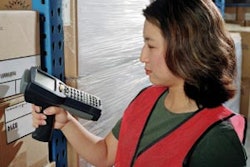RedTail Solutions developing key business intelligence interface for University of Florida Research Center initiative
Westborough, MA — August 26, 2005 — RedTail Solutions, a provider of outsourced electronic trading solutions, is participating in The University of Florida IFAS's Center for Food Distribution and Retailing (CFDR), Gainesville, Fla., research pilot featuring radio frequency identification (RFID) technology and network-based information exchange to improve the distribution of fresh produce.
The pilot, named Visibility Validated (V2), will measure the impact of improved supply chain visibility between suppliers and retailers. The V2 project is focused on the publishing of observation events to a virtual test bed simulation of the EPCglobal network.
RedTail solutions and other V2 project participants hope to show how EPCglobal-based RFID technology will provide valuable supply chain visibility. The V2 project is being conducted in cooperation with its participating members: suppliers, a retailer and technology providers.
Publix Super Markets, of Lakeland, Fla., has volunteered to be the retailer for this project. Publix is the largest and fastest-growing employee-owned supermarket chain in the United States. All tracked shipments will be received at the Publix distribution center in Lakeland.
Produce suppliers involved in this project include: Del Monte Fresh Produce; Tanimura & Antle; A. Duda & Sons; and Ballantine Produce Co.
RedTail is developing the business intelligence interface to work with VeriSign's Track and Trace Services. RedTail, a privately held company, located in Westborough, Mass., is a provider of electronic trading solutions and services designed to enable mid-market companies to participate and compete in the global supply chain.
The CFDR is the first research center of its kind worldwide to focus on perishables distribution and retailing. Located at the University of Florida in Gainesville, the Center includes more than 25 faculty researcher plus associated students and staff involved in research and development involving the entire perishable distribution system from product source to retail shelves.
Additional Articles of Interest
— The focus in the retail sector has shifted from managing the movement of goods to managing information about goods. Read more in "Ramping Up the Retail Supply Chain," in the February/March 2005 issue of Supply & Demand Chain Executive.
— Bad packaging, poor handling and substandard shipping and receiving practices account for more than half the returns in the supermarket industry, and the use of folding cartonboard could significantly reduce unsaleables in the industry, one research project has found. Read about the GENCO study of frozen food manufacturers in the SDCExec.com article "Bad Packaging, Poor Handling Seen Driving High Unsaleables."
— For a look at how Canadian company McCain Foods is overcoming data synchronization challenges in its supply and demand chain, see the article "Building a 'Trusted Source'" in the April/May 2004 issue of Supply & Demand Chain Executive.
Westborough, MA — August 26, 2005 — RedTail Solutions, a provider of outsourced electronic trading solutions, is participating in The University of Florida IFAS's Center for Food Distribution and Retailing (CFDR), Gainesville, Fla., research pilot featuring radio frequency identification (RFID) technology and network-based information exchange to improve the distribution of fresh produce.
The pilot, named Visibility Validated (V2), will measure the impact of improved supply chain visibility between suppliers and retailers. The V2 project is focused on the publishing of observation events to a virtual test bed simulation of the EPCglobal network.
RedTail solutions and other V2 project participants hope to show how EPCglobal-based RFID technology will provide valuable supply chain visibility. The V2 project is being conducted in cooperation with its participating members: suppliers, a retailer and technology providers.
Publix Super Markets, of Lakeland, Fla., has volunteered to be the retailer for this project. Publix is the largest and fastest-growing employee-owned supermarket chain in the United States. All tracked shipments will be received at the Publix distribution center in Lakeland.
Produce suppliers involved in this project include: Del Monte Fresh Produce; Tanimura & Antle; A. Duda & Sons; and Ballantine Produce Co.
RedTail is developing the business intelligence interface to work with VeriSign's Track and Trace Services. RedTail, a privately held company, located in Westborough, Mass., is a provider of electronic trading solutions and services designed to enable mid-market companies to participate and compete in the global supply chain.
The CFDR is the first research center of its kind worldwide to focus on perishables distribution and retailing. Located at the University of Florida in Gainesville, the Center includes more than 25 faculty researcher plus associated students and staff involved in research and development involving the entire perishable distribution system from product source to retail shelves.
Additional Articles of Interest
— The focus in the retail sector has shifted from managing the movement of goods to managing information about goods. Read more in "Ramping Up the Retail Supply Chain," in the February/March 2005 issue of Supply & Demand Chain Executive.
— Bad packaging, poor handling and substandard shipping and receiving practices account for more than half the returns in the supermarket industry, and the use of folding cartonboard could significantly reduce unsaleables in the industry, one research project has found. Read about the GENCO study of frozen food manufacturers in the SDCExec.com article "Bad Packaging, Poor Handling Seen Driving High Unsaleables."
— For a look at how Canadian company McCain Foods is overcoming data synchronization challenges in its supply and demand chain, see the article "Building a 'Trusted Source'" in the April/May 2004 issue of Supply & Demand Chain Executive.
- More articles about RedTail Solutions.


















